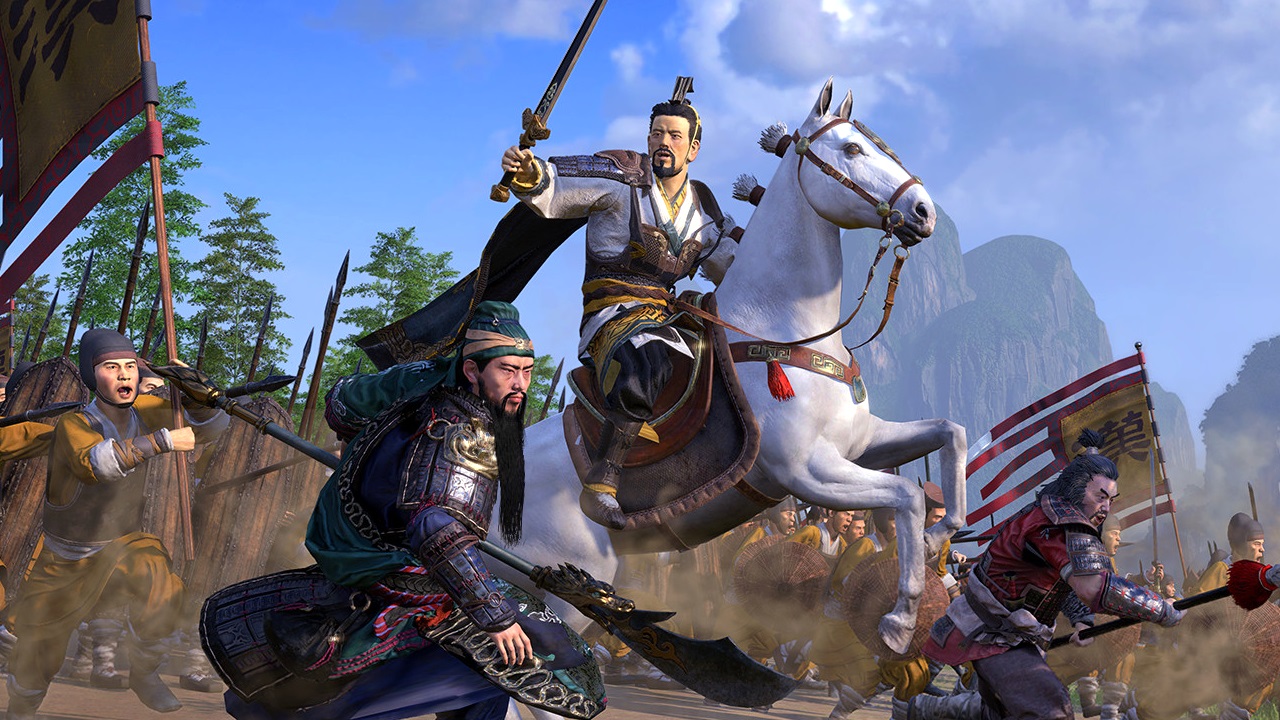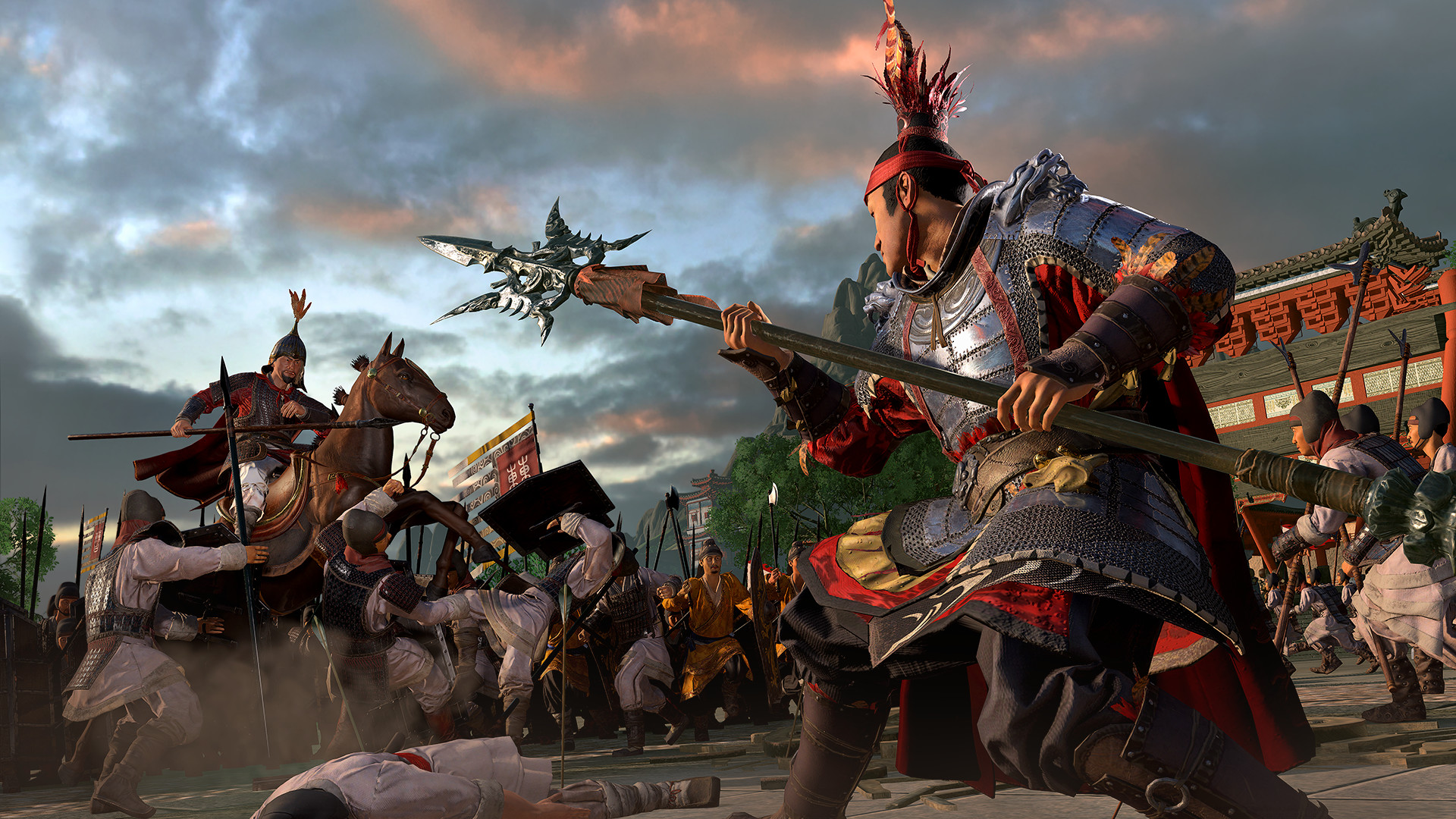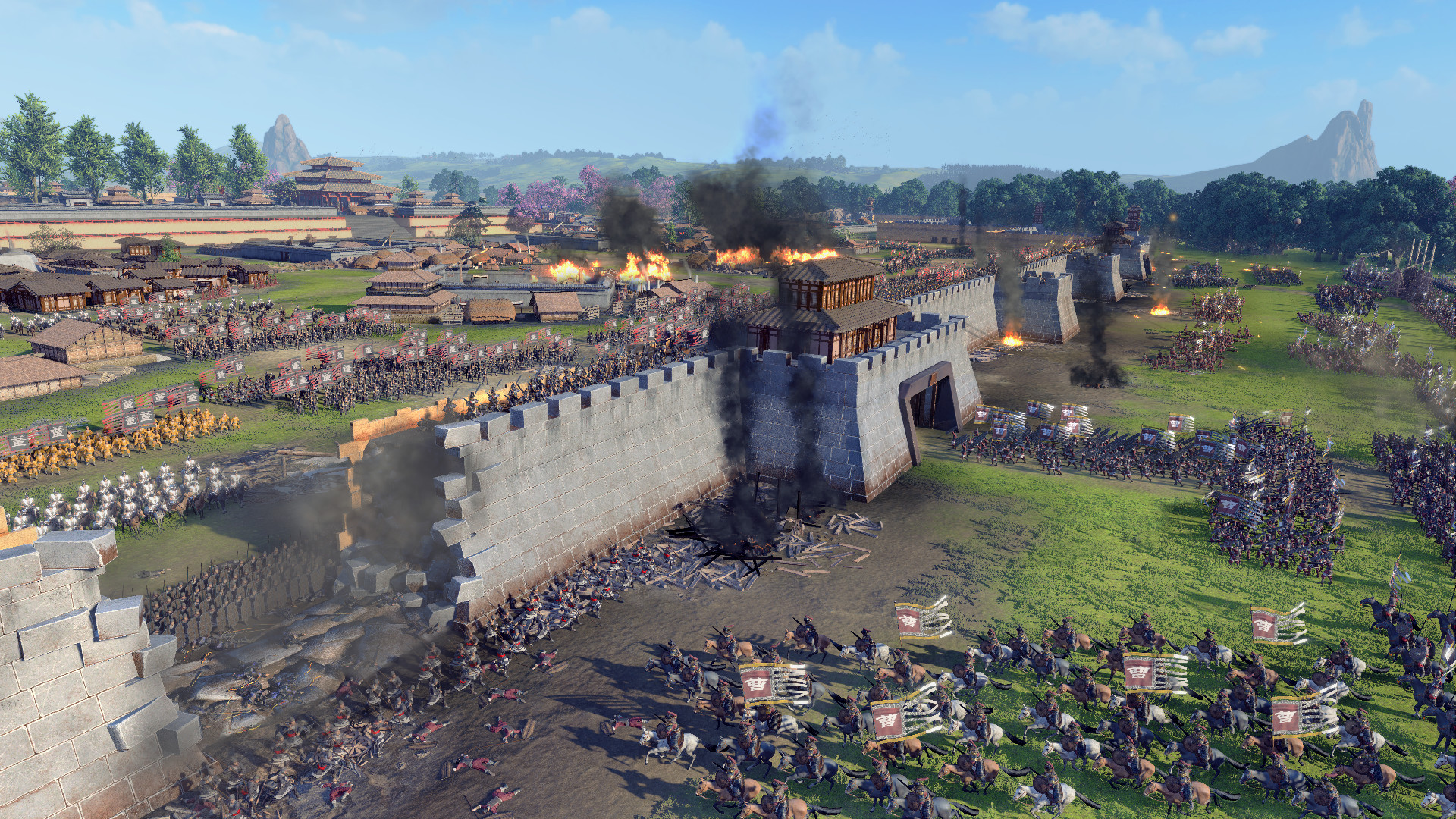Total War: Three Kingdoms review round up: "Relationships come to shape your decisions"
See what the Total War: Three Kingdoms reviews are saying

The Total War: Three Kingdoms reviews are out now, and you can start reading what the critics think while you wait for the game to arrive on May 23. You can already find a number of perspectives on Three Kingdoms' strengths both as the next Total War and as its own fresh take on a much-recounted period of Chinese history. These Total War: Three Kingdoms review snippets should illuminate some specific areas of the game, but feel free to click on each outlet's name to read the full version for yourself.
Total War: Three Kingdoms' Diplomacy is essential - PC Gamer (78/100)
"Diplomacy is one of the most substantial and welcome areas to be changed. Where before there was so much guesswork involved that dealing with rival nations felt like passing notes in class and then waiting for an answer ('Do you want to form a defensive alliance with me, y/n'), in Three Kingdoms it's completely transparent. Whenever I ask a neighbor for something there's a button to automatically figure out what it would take to make that deal work. It just straight-up tells you how much money will guarantee this trade of territory or food or even marriage, rather than making you stab in the dark then try again when it fails [...] Diplomacy has been a weak point for Total War even as other systems have improved, so these are welcome changes. So is the quick deal button, which lets you immediately see who is open to trade or vassalhood or whatever rather than having to scroll down a list. "
Total War: Three Kingdoms' characters matter more than ever - The Guardian (4/5)
"Whether you play in Romance mode - which gives your generals sorcerous battlefield abilities - or Records, which skews to the realistic, the characters remain at the foundation, where older Total War games treated them as secondary. Before recruiting armies, for example, you must appoint a commander, whose attributes go some way to determining which troops you'll hire and how they perform. You can also promote characters to positions at court, from town administrator all the way to prime minister, to shape the operation of your empire. Characters have their own notions of job satisfaction and a certain autonomy; overlook one for promotion or fail to supply an entourage befitting their status, and they may eventually switch sides.
These personalities age and evolve over the course of each playthrough. They don't just develop new traits - a scarred visage that sparks terror in combat, a charitable outlook that makes them popular with peasants - but they also develop friendships and grudges with other characters. With time, these relationships come to shape your decisions as heavily as economic factors such as crop production."

Total War: Three Kingdoms' Romance mode makes combat mythical - GameSpot (8/10)
"The distinctive, much-trumpeted difference between Three Kingdoms and previous titles is the aforementioned Romance mode. This is where the fantastical merges with the historical in a way that offers you a new way to dominate opponents on the battlefield. In this mode, your generals stand head and shoulders above the rest, capable of single-handedly taking out entire squadrons on their own even as they yell out orders to the men rallying around them. In Romance mode, the strength of said generals grows in epic scale and scope over time, much in line with the fantastical deeds they perform in the source material. Generals also have the option to engage in duels with each other, which provides a spectacular, clash of the titans-style combative satisfaction. Three Kingdoms also lets you take these types of confrontations one step further in the new Battle mode, which lets you reenact famous skirmishes from Chinese history as these storied generals. It's both nicely educational and a refreshing change of pace."
Total War: Three Kingdoms' battle AI can be weak, but perhaps by design - Rock Paper Shotgun (Bestest Bests)
"Three Kingdoms' AI armies are extremely predictable. In most other strategy games they would be infuriating. However, in a series which resembles historical war more closely than most others it's difficult to say where strategy ends and exploit begins. Commanders really have made stupid decisions about deployment and tactics in our world, and in Three Kingdoms the distinction between the 'decisions' of a character like Yuan Huan and the failure of the game are very unclear. For what it's worth, I was winning evenly matched battles at the hardest difficulty in the game's custom battle mode, and there was no great difference in the capacity of the battle AI to make good decisions regardless of difficulty. Three Kingdoms can be hard, but its difficulty comes from the campaign, which rightly places you against stronger factions and armies such as Dong Zhou's."

Total War: Three Kingdoms can get mired in subsystems - Eurogamer (Recommended)
"I often found myself dithering and fussing over getting my nicely colour-coded, complementary systems in line, when sometimes it just isn't quite worth it for a small percentage boost to population growth. In fact often it's detrimental, the Population, Food Supply, Public Opinion trifecta always in perpetual conflict and never in equilibrium. The effect of that, in particular, being too much time in the sub-menus of the overworld map, where buildings are all economy-focused in some way now that the availability of new troop types has been shifted to the tech tree entirely. Too much Total Commandery Taxation Levy Administrator and not enough Total War.
Weekly digests, tales from the communities you love, and more
Where that ambition oversteps, then, is where it all begins to create a sense of intellectual fog, one that will probably layer itself over much of your first campaign, even if you're a seasoned player. There's often just one too many plates to spin, one too many Administrators to re-administer on the same task they just finished, one too many layers of systemic UI to dig through."
Find more grand conflicts to play out in our list of the best strategy games. Or watch our latest Release Radar video to see what's hot in games and entertainment this week. Want to know about any cheat codes? Check out this Total War: Three Kingdoms cheats guide.

I got a BA in journalism from Central Michigan University - though the best education I received there was from CM Life, its student-run newspaper. Long before that, I started pursuing my degree in video games by bugging my older brother to let me play Zelda on the Super Nintendo. I've previously been a news intern for GameSpot, a news writer for CVG, and was formerly a staff writer at GamesRadar.


